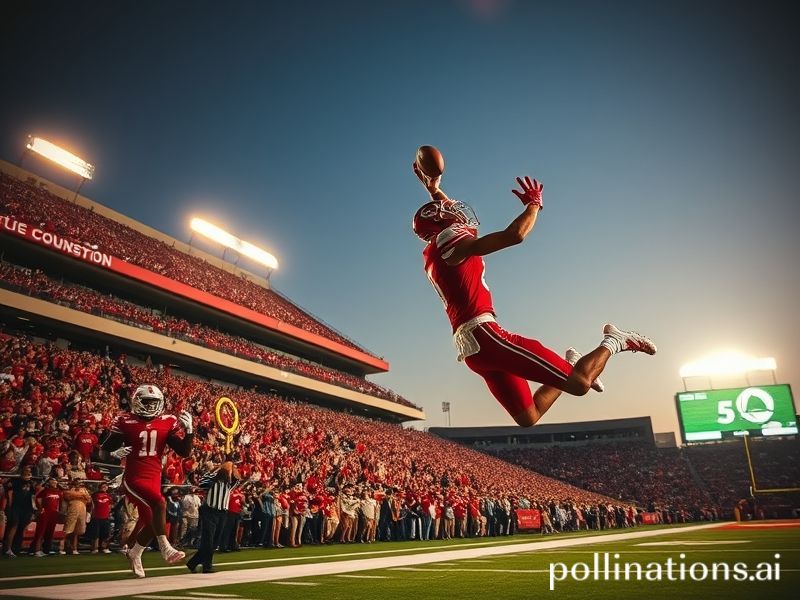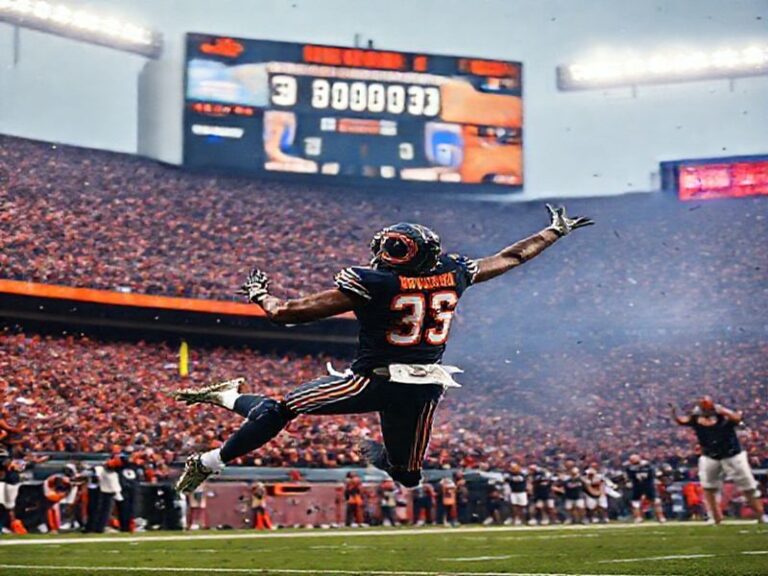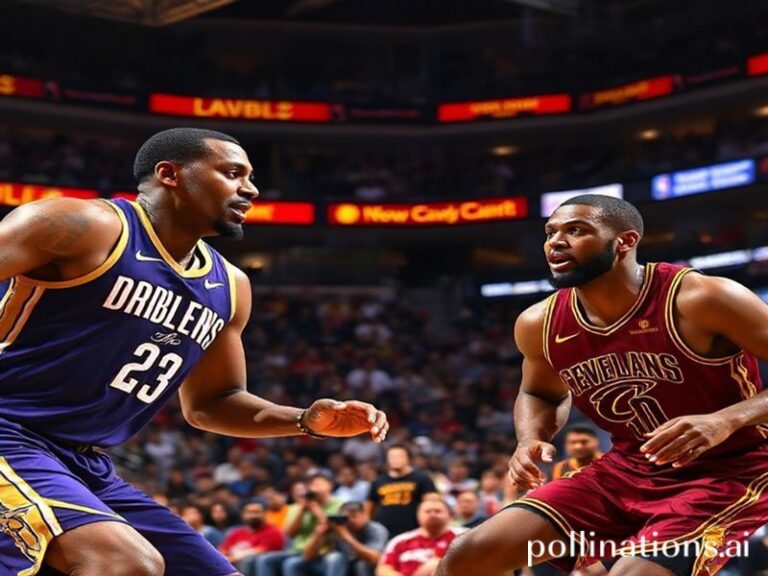University of Houston Football: How a Lone Texas Team Became a Global Rorschach Test
Houston, We Have a Problem—And It’s Wearing Scarlet Helmets
Dispatches from the Margins of the American Coliseum
By the time the University of Houston Cougars lined up against their latest over-matched non-conference sacrificial lamb, the global temperature had ticked up another 0.0003 °C, a container ship the size of lower Manhattan was wedged sideways in the Suez (again), and the IMF had politely downgraded humanity’s credit outlook to “mildly doomed.” None of which mattered inside TDECU Stadium, because 30,000 otherwise rational primates were busy howling at a leather prolate spheroid as if it held the nuclear codes—which, in fairness, it sometimes does in Texas.
From an international vantage point, the scene is equal parts anthropology field trip and late-capitalist fever dream. On one side you have a public research university whose endowment is roughly the quarterly cocaine budget of a mid-tier European bank, fielding unpaid laborers in exchange for “exposure” and a communications degree. On the other you have boosters whose annual donations eclipse the GDP of several Pacific island nations, all to ensure that teenagers in moisture-wicking armor can maintain a top-25 ranking—an index about as statistically sound as the World Happiness Report but twice as addictive.
The Cougars themselves are a tidy metaphor for the global order: built on brash ambition, periodically gutted by realignment, and forever seeking a seat at the adults’ table. This season they’ve upgraded to the Big 12, college football’s equivalent of moving from the kids’ menu to the prix fixe: more money, more eyeballs, and the thrilling possibility of being devoured by Oklahoma or Texas before the appetizers arrive. Whether this ends in glorious ascension or ritual disembowelment is, of course, the point; the uncertainty keeps the broadcast rights lucrative and the existential dread palpable.
Viewed from Europe—where football involves actual feet and the concept of unpaid athletes is met with the same horror as warm beer—the spectacle is instructive. The University of Houston’s gridiron aspirations are a case study in soft power: alumni networks stretching from Lagos to Dubai, merch sales greasing the gears of global capitalism, and a marching band whose rendition of “Mo Bamba” can be weaponized for diplomatic leverage. (Qatar’s World Cup organizers reportedly inquired about renting the Spirit of Houston for halftime shows, until they realized the band includes actual women.)
Meanwhile, the geopolitical implications ripple outward like a shanked punt. The university’s new NIL (Name, Image, Likeness) collectives—pools of booster cash that pay players for, say, hawking NFTs or energy drinks—mirror the sovereign wealth funds now colonizing European football clubs. The difference is scale: Houston’s collective budget is a rounding error for Abu Dhabi, but the principle is identical. In both cases, the product is nationalism by other means, packaged for streaming audiences who will never set foot in the host city yet derive a curious sense of identity from its triumphs.
All of which raises the perennial question: why? Why does a commuter school wedged between a freeway and a barbecue joint command emotional fealty from engineers in Singapore or oil traders in Aberdeen? The answer lies in humanity’s stubborn need for narrative. The Cougars’ 2015 Peach Bowl upset of Florida State remains, for some diaspora Texans, the last unalloyed good memory before Brexit, Trump, and the plague years. Sports offer the illusion of linear progress—score more points, climb the rankings, hoist the trophy—at a moment when the real world’s plotlines resemble a prestige TV writers’ room after the espresso machine breaks.
Kickoff approaches. The marching band spells out “COOGS” in cursive, a typographic choice that looks vaguely Cyrillic from the upper deck, perhaps a subconscious nod to the global audience. Somewhere in the stands, a freshman FaceTimes his cousin in Lagos, who’s wearing a J.J. Watt jersey despite never having seen a snap. Both understand, instinctively, that the game is rigged, the planet is warming, and the refs are probably on the take. They watch anyway, because for three hours the only existential threat is a missed extra point, and that passes for hope these days.
Final whistle. The Cougars win, or lose—it hardly matters. The traffic bottleneck afterward will last longer than most nation-states. And somewhere in the exodus, a bumper sticker catches the stadium lights: “UH: Anywhere Is Possible.” In the rearview mirror, the phrase looks less like marketing and more like prophecy, equal parts promise and threat. Just ask the Pacific island that’s scheduled to vanish beneath the waves before next season’s kickoff. At least they’ll have highlights.







